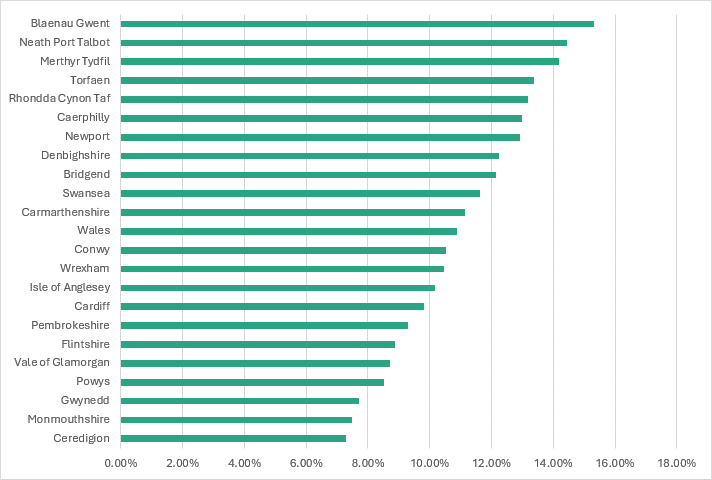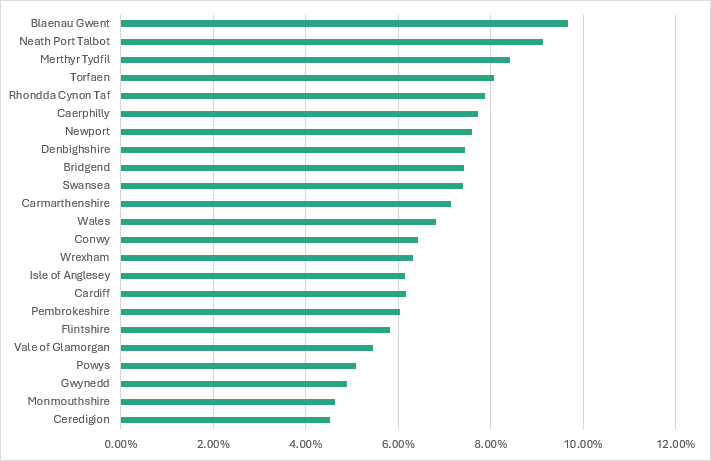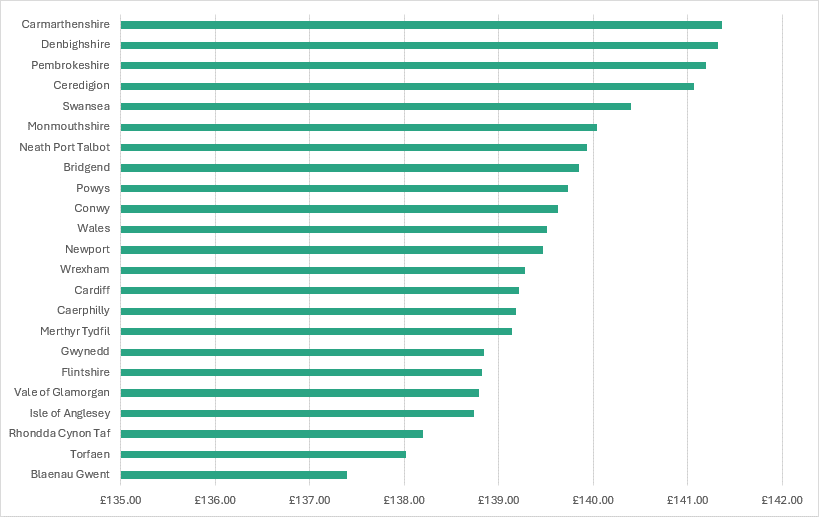On 18 March 2025 the UK Government announced reforms to health and disability benefits. Further changes were announced in the Spring Statement.
The UK Government says the current welfare system is financially unsustainable and reform “makes moral sense”. By its own assessment, an estimated further 250,000 people, including 50,000 children, will be pushed into relative poverty in England and Wales as a result of the reforms.
The UK Government has not provided a separate Welsh assessment, but there are concerns that Wales will be disproportionately affected by the changes. This article will explore the possible impacts on disabled people in Wales. It will also look at the Senedd’s Equality and Social Justice Committee’s inquiry into what more can be done to remove the barriers to employment faced by disabled people.
What are the proposed changes?
The UK Government’s green paper sets out the case for changing what it describes as the “broken welfare system”. It highlights the increase in spending on incapacity and disability benefits for working-age adults which is forecast to be over £70 billion in 5 years’ time. With one in every 10 working-age people in Britain now claiming at least one type of health or disability benefit, it also argues that “no one should be consigned to a life on benefits just because they have a health condition or a disability”.
The key changes proposed in the green paper are:
- Increasing the threshold of disability eligibility criteria needed to be awarded Personal Independence Payments (PIP).
- Using receipt of PIP as the gateway to qualifying for the health related addition in Universal Creditreplacing the Work Capability Assessment (WCA) with a single PIP assessment.
- Removing the Universal Credit Health related top ups for those under 22 years of age.
- Freezing the health element of Universal Credit at £97 per week for existing claims until 2030. New claimants will receive £50 per week.
- Increasing the Universal Credit standard allowance for new and existing claims to £107 per week.
The Spring Statement added further cuts:
- A reduction in the amount that standard Universal Credit would rise by, from £107 to £106 per week.
- Freezing the Universal Credit health element for new claimants (it’s already frozen for people currently receiving it).
Alongside these changes, the UK Government is investing £1 billion in a new guarantee of support for all disabled people and people with health conditions claiming out of work benefits who want help to get into or return to work. It has also committed to devolve non-Jobcentre Plus employment support funding to the Welsh Government.
What are the implications for Wales?
The impact assessment accompanying the green paper has been prepared on an England and Wales basis. It estimates that in 2029/2030 there will be 3.2 million families who will lose an average of £1,720 per year. It also estimates that 3.8 million families will gain an average of £420 per year.
However, there is no specific assessment of the impact of reforms on those living in Wales. This issue was raised by the First Minister in a letter to the Secretary of State for Work and Pensions, Liz Kendall MP. The response didn’t offer any further detailed assessment, other than highlighting that:
15% of working age people in Wales receive a disability or incapacity benefit – significantly higher than in England – and around a quarter are neither in work nor looking for work.
The Bevan Foundation says the plans will have a “huge, and concerning, impact on 275,000 people in Wales who receive Personal Independence Payment (PIP) and 110,000 people who receive Universal Credit and have Limited Capability for Work Related Activity”.
The Wales Governance Centre says:
Because of the higher proportion of the working age population receiving PIP in Wales (11%, compared with 7% in England), we would expect the impact of these cuts to be particularly pronounced in Wales.
There is also significant variation within Wales in the number of people claiming PIP and Universal Health Credit as shown in the tables below.
Figure 1: Percentage of working age population claiming PIP for each local authority and Wales

Source: Personal Independence Payment: Cases with Entitlement from 2019, Stat-Xplore, Department for Work and Pensions (September 2024 data).
Figure 2: Percentage of working age population claiming Universal Health Credit for each local authority and Wales

Source: People on Universal Credit with a health condition or disability restricting their ability to work, Stat-Xplore, Department for Work and Pensions (September 2024 data).
The Wales Governance Centre also says areas like Blaenau Gwent and Merthyr Tydfil, who have the highest numbers of people receiving PIP and relatively low average per person payments, are likely to see the greatest impact. Where PIP awards are low this could result in more people not meeting the higher eligibility criteria. A breakdown of the average PIP award by local authority is provided below.
Figure 3: The average financial PIP award per local authority and Wales

Source: Personal Independence Payment: Cases with Entitlement from 2019, Stat-Xplore, Department for Work and Pensions (September 2024 data).
What are the barriers to employment faced by disabled people?
Disability Wales has expressed concerns that the proposed reforms will take “money out of the system and away from support for disabled people, without any clear plan to tackle wider inequalities faced in employment, independent living, education and transport”.
The Senedd’s Equality and Social Justice Committee’s recent inquiry into disability and employment in Wales found that disabled people in Wales face unnecessary barriers to employment.
Nearly all the evidence received mentioned the key role of employers. Cardiff Business School’s Professor Victoria Wass said there was too much emphasis in the past on incentivising disabled people into work and that there was a need to “refocus policy attention on what’s happening with the employers”.
Those with a lived experience were critical of the operation of key UK-wide employment schemes, including the Access to Work scheme. Despite this being one of the key vehicles for supporting disabled people into employment, disabled people currently face lengthy delays accessing it.
The Welsh Government is currently considering the Committee’s 9 recommendations. Describing the report as “remarkable”, the First Minister said the focus should be on “how do we get people who are desperate to get into work into work?” and said a disabled people's rights plan will be published imminently.
|
If you are affected by any of the issues in this article, you can find more information including advice and support in this guide, collated by Senedd Research. |
Article by Claire Thomas and Peter Davies, Senedd Research, Welsh Parliament






